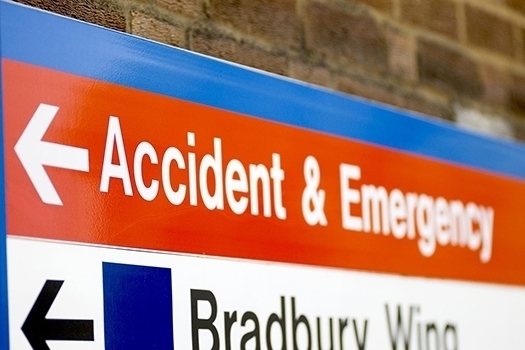NHS England is considering scrapping its flagship A&E target, under which patients should be seen within four hours of arrival.
In the interim report on NHS access standards, released yesterday, NHS England said as there are ‘well-documented issues’ with the four-hour standard, ‘alternatives are worth exploring’.
NHS England set out five new proposed access standards for urgent and emergency care, including patients with life-threatening conditions receiving care within one hour of arrival.
The targets will be trialled along with other proposals concerning cancer, mental health and elective care in the coming months, across a number of sites that will be selected by NHS England.
Following the results of these trials, the proposals could be mandated across the NHS from April 2020, according to NHS England.
The four-hour A&E target has been in the spotlight since NHS England chief executive Simon Stevens in January told BBC Radio 4’s Today programme that ‘faster standards’ could replace the target.
Introduced in 2004, the target has not been met since 2015.
According to NHS England data published in February, A&E performance against the four-hour target reached its worst level in 15 years in January, with only 84.4% of patients seen within four hours of arrival across all A&E departments, against the 95% target.
The new report, written by NHS England medical director Professor Stephen Powis, said: ‘The current headline four-hour access standard is used to measure and report performance against one aspect of the urgent and emergency care system.
‘It has proved useful in focusing on flow in the best hospitals, and permits comparison of individual healthcare organisations and health systems. However, given the changing nature of urgent and emergency care services, the current single standard only offers a limited insight into patient care.
‘There are a number of well-documented issues, which suggest that alternatives are worth exploring.’
Commenting on the proposals, CQC chief inspector of hospitals Professor Ted Baker said: ‘The four-hour A&E standard has been valuable in focusing efforts on improving emergency care but if we are to continue to improve patient safety and ensure every patient gets the priority they individually need it must be reformed and we must find better measures to ensure patient safety.
‘Emergency departments need a set of standards which gives priority to patients with life-threatening conditions, ensures people get care in a timely way and puts pressure on the whole hospital to end long corridor waits for those who need admitting.
‘We are confident that field testing these proposals is the safest and most effective way of improving care.’
A version of this article first appeared on Pulse’s sister publication Healthcare Leader.

















